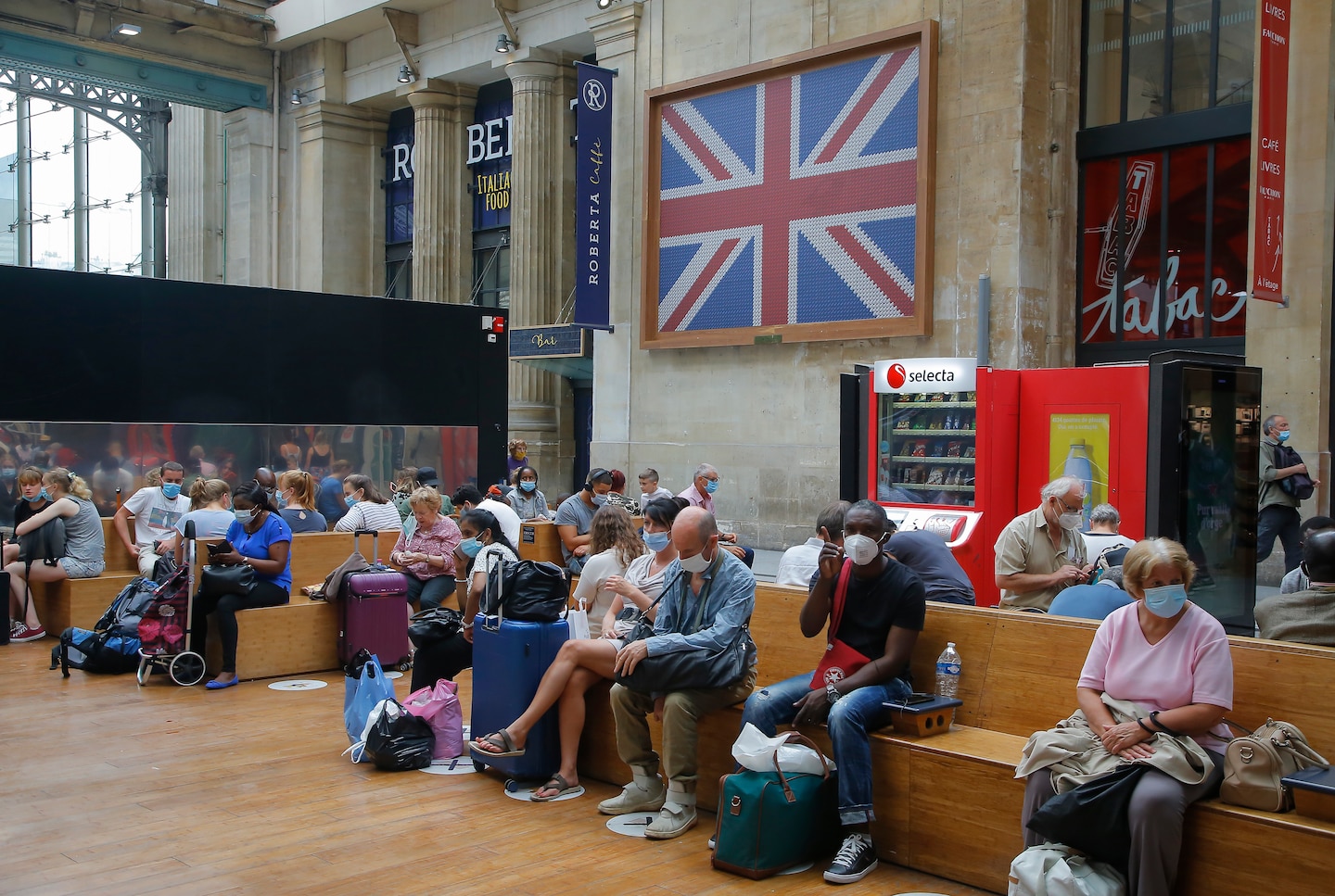British vacationers in France told to return home or face 14-day quarantine

Anyone — British citizens or travelers — arriving in the U.K. from France on Saturday will be ordered to self-quarantine for two weeks.
Britain and France share one of the most frequently crossed borders in the world, and the English traditionally pour into France, Spain and Italy for their summer holidays.
The isolation measures also apply to people arriving in the U.K. from the Netherlands, Monaco, Malta, Turks and Caicos, and Aruba.
There were early reports of jam-packed ferries, overbooked flights and full trains home for British holidaymakers.
The Eurotunnel, the train service for walk-on passengers and vehicles that zips through the Channel Tunnel, the 31-mile undersea rail route linking the U.K. and France, warned travelers not to show up without a booking.
Many confused vacationers reached out to Eurotunnel on Twitter, asking questions such as: “If I just drive through France without stopping to refuel or use toilet facilities do I need to quarantine in the UK?” (The train service replied that they didn’t think so, as long as their origin country wasn’t on the quarantine list and they didn’t get out of the car.)
Steve Phillip, 61, from North Yorkshire in England, said in an email exchange with The Washington Post that he and his wife were in France in part to support a family member who was about to undergo chemotherapy and another who has early-stage Alzheimer’s. They weren’t rushing to the airport or ferry, and they recognized that they’d be quarantining when back in Britain.
“Initially we were in shock, although we had considered this might happen and perhaps naively hoped it wouldn’t,” he said.
He said that he didn’t think quarantining was inevitable. If the U.K. had an “effective track and trace process in place, as they keep promising, then we wouldn’t be faced with having to quarantine.”
Michael Smallwood, 60, of New Ash Green, a village in southeast England, heard the news Friday morning.
The British government made the announcement Thursday night at 10 p.m. — 11 p.m. in France — when many vacationers were asleep.
Smallwood was in France camping near a remote beach with friends who often go to the area for kite buggying — zooming around on go-carts pulled by wind sails. When he heard the news, he rushed to the nearby ferry port.
“If I have to self-quarantine for 14 days, that will have quite an impact on my immediate earnings,” said Smallwood, who runs his own cleaning business. “But this has to be balanced with the fact that I knew this could happen. I’m a grown-up. I accept responsibility for what I do and just hope for the best.”
Smallwood then asked to pause the conversation as he pulled up to the ferry’s office, where he was told he could change his ticket from Monday to Friday.
“Merci, merci, très bien. That is brilliant news. Au revoir,” he told the ticket officer, before pulling into a lane to wait for the next ferry.
Britain’s transport secretary, Grant Shapps, said the quarantine requirement for travelers from France and the other countries was decided on after infection rates in France exceeded 20 cases per 100,000 people over seven days.
“We’ve worked so hard in this country to get our level of infections down. The last thing we want to do is to have people returning and bringing the infection with them,” Shapps told the BBC. “It’s to protect everybody.”
French officials told reporters in Paris that they would impose a reciprocal measure on travelers arriving in France from Britain.
Prime Minister Boris Johnson said his government would be “absolutely ruthless” in ordering quarantines for travelers from countries with rising infections.
“We can’t be remotely complacent about our own situation,” Johnson said. “Everybody understands that in a pandemic, you don’t allow our population to be reinfected or the disease to come back in.”






